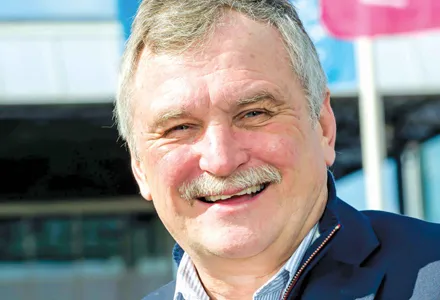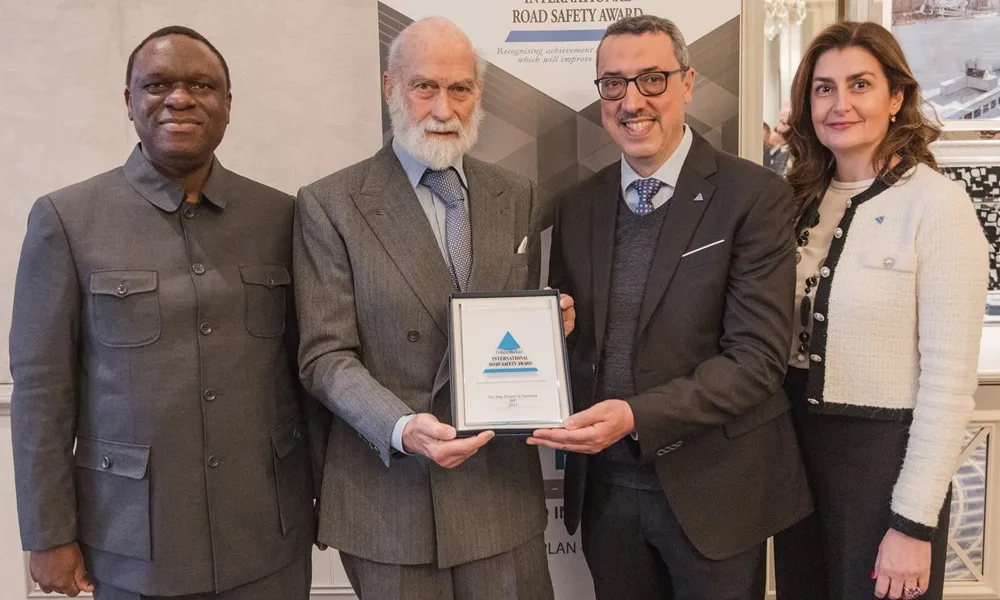As the co-chairman of Pillar II (“Safer roads and mobility”) of the United Nations Road Safety Collaboration, I was privileged to be in New York on April 15, 2016 as the United Nations General Assembly adopted a resolution on “improving global road safety” sponsored by 56 UN member states.
By a bitter twist of fate, this resolution came to pass as many countries around the world are reporting a notable increase in injuries and deaths on their roads, including in countries that had seen a steady decline
June 8, 2016
Read time: 3 mins

RSSMike Dreznes, IRF executive vice president reports
As the co-chairman of Pillar II (“Safer roads and mobility”) of the United Nations Road Safety Collaboration, I was privileged to be in New York on April 15, 2016 as the United Nations General Assembly adopted a resolution on “improving global road safety” sponsored by 56 UN member states.
By a bitter twist of fate, this resolution came to pass as many countries around the world are reporting a notable increase in injuries and deaths on their roads, including in countries that had seen a steady decline in recent years. According to the UN and many specialists, the overwhelming majority of these deaths and injuries are predictable and preventable.
On the face of it, there is growing consensus that governments and other development partners need to focus their attention and considerable resources on road safety. On the ground however, the situation could not be more different from the overwhelming consensus that has emerged at the3262 United Nations.
The problem resides primarily with an uneven understanding and application of risk assessment procedures, lack of understanding as well as available resources for effective countermeasures and, in some cases, resistance to change by field personnel.
In 2015, 82.5% of countries reported implementing road safety audits on new roads, yet over 70% of roads surveyed by the International Road Assessment Program (iRAP) in emerging countries were rated under 2 stars across at least one user category. These are the countries where nine out of ten fatal traffic injuries occur.
These figures suggest a startling disconnect between the theoretical merits of safe road planning and assessment, versus the actual results experienced by countless road users every day.
To remedy the issues caused by diverging risk assessment practices and auditor qualifications,3918 IRF Washington is announcing two new important initiatives.
We are launching a new training program on “road network safety management” that will provide a complete diagnosis toolkit for road planners, designers and managers to forecast and prevent traffic injury risk. This new training together with our Safer Roads by Design course in Orlando will offer the most comprehensive road safety training programs in the world.
We are also creating a pathway to offer formal certification to Road Safety Audit Team Leaders at global level on a volunteer basis. This process will build upon an earlier policy statement outlining qualifications for Road Safety Audit Team Leaders.
The “vaccines” are available to eliminate this epidemic of fatalities on the roads around the world. The targets set by the Member States themselves at the UN eliminate one more excuse that governments might use to justify not using these road safety countermeasures.
As the co-chairman of Pillar II (“Safer roads and mobility”) of the United Nations Road Safety Collaboration, I was privileged to be in New York on April 15, 2016 as the United Nations General Assembly adopted a resolution on “improving global road safety” sponsored by 56 UN member states.
By a bitter twist of fate, this resolution came to pass as many countries around the world are reporting a notable increase in injuries and deaths on their roads, including in countries that had seen a steady decline in recent years. According to the UN and many specialists, the overwhelming majority of these deaths and injuries are predictable and preventable.
On the face of it, there is growing consensus that governments and other development partners need to focus their attention and considerable resources on road safety. On the ground however, the situation could not be more different from the overwhelming consensus that has emerged at the
The problem resides primarily with an uneven understanding and application of risk assessment procedures, lack of understanding as well as available resources for effective countermeasures and, in some cases, resistance to change by field personnel.
In 2015, 82.5% of countries reported implementing road safety audits on new roads, yet over 70% of roads surveyed by the International Road Assessment Program (iRAP) in emerging countries were rated under 2 stars across at least one user category. These are the countries where nine out of ten fatal traffic injuries occur.
These figures suggest a startling disconnect between the theoretical merits of safe road planning and assessment, versus the actual results experienced by countless road users every day.
To remedy the issues caused by diverging risk assessment practices and auditor qualifications,
We are launching a new training program on “road network safety management” that will provide a complete diagnosis toolkit for road planners, designers and managers to forecast and prevent traffic injury risk. This new training together with our Safer Roads by Design course in Orlando will offer the most comprehensive road safety training programs in the world.
We are also creating a pathway to offer formal certification to Road Safety Audit Team Leaders at global level on a volunteer basis. This process will build upon an earlier policy statement outlining qualifications for Road Safety Audit Team Leaders.
The “vaccines” are available to eliminate this epidemic of fatalities on the roads around the world. The targets set by the Member States themselves at the UN eliminate one more excuse that governments might use to justify not using these road safety countermeasures.







